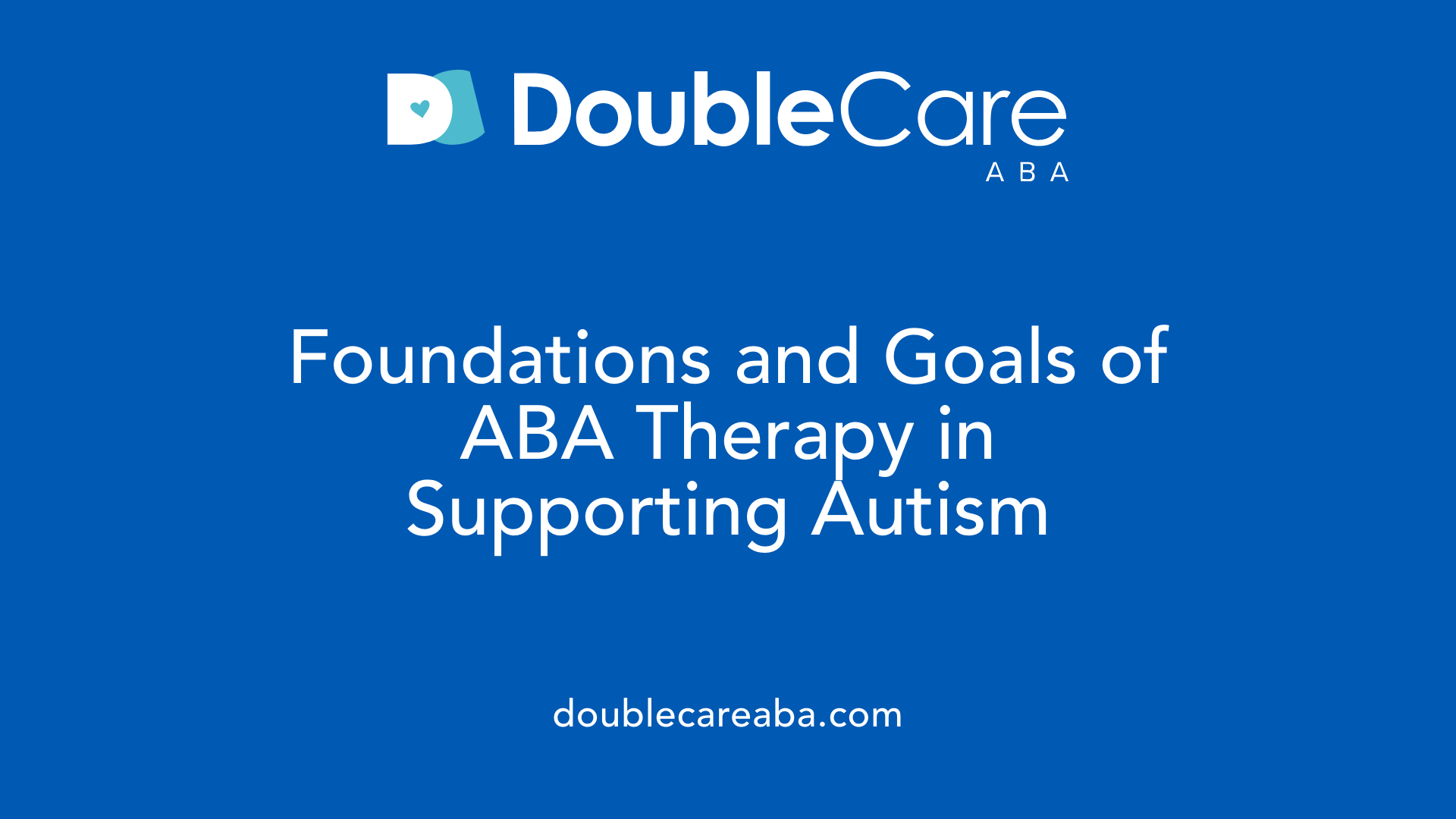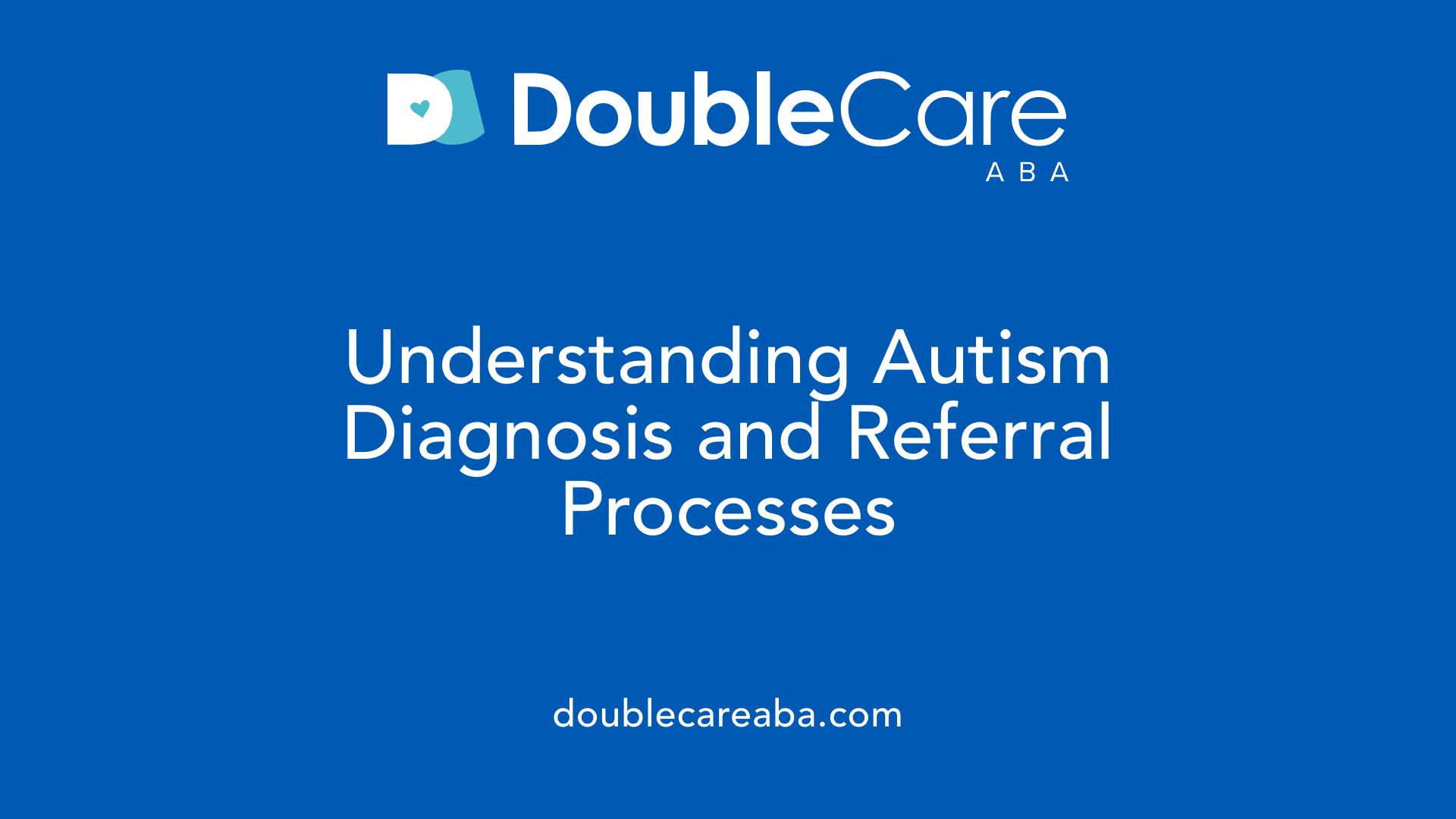Understanding Autism Support in Arkansas
Families in Arkansas seeking autism-related evaluations and therapies have access to a range of specialized services aimed at diagnosis, early intervention, and ongoing support. From Medicaid referrals to dedicated developmental centers and numerous ABA therapy providers, the state offers diverse pathways to assist children with autism spectrum disorder (ASD) in developing essential skills and managing behaviors. This article explores the landscape of autism resources across Arkansas, focusing on therapy options, diagnostic procedures, and the roles of leading organizations.
Applied Behavior Analysis (ABA) Therapy: Foundations and Goals

What is Applied Behavior Analysis (ABA) therapy?
Applied Behavior Analysis (ABA) therapy is a science-based approach used primarily to support individuals with autism spectrum disorder. It focuses on helping children develop useful skills while reducing behaviors that might interfere with their daily lives. ABA therapy uses techniques such as positive reinforcement, where good behaviors are rewarded to encourage their repetition.
This therapy is highly personalized, crafted to meet each child's unique needs, and can be provided in settings like the home, school, or community. Licensed professionals known as Board Certified Behavior Analysts (BCBAs) supervise ABA programs to ensure they are effective. Methods employed in ABA include Discrete Trial Training and Pivotal Response Treatment, all supported by research showing significant improvements in language, cognitive abilities, and social skills when therapy starts early and is intensive.
What are the core goals of ABA therapy for autism?
ABA therapy aims to build a range of skills to help children gain independence and improve their quality of life. Some specific goals include:
- Daily living skills: Teaching children how to manage feeding, dressing, grooming, and toileting.
- Communication skills: Helping children ask for what they want, name objects, and engage in conversations.
- Social skills: Developing abilities such as sharing, recognizing emotions, and taking turns.
- Community skills: Learning how to stay safe, use money, and interact in public settings.
Reducing challenging behaviors like tantrums or aggression is also a major focus. Success depends on factors like the amount of therapy, family involvement, and the child's initial skill level.
What evidence-based methodologies are used in ABA?
ABA therapy includes several structured approaches tailored to support learning effectively. Common methodologies involve:
- Discrete Trial Training (DTT): Breaking skills into small, manageable steps taught through repeated trials.
- Pivotal Response Treatment (PRT): Encouraging motivation to learn through child choice and natural rewards.
- Early Start Denver Model (ESDM): Combining play-based methods with ABA techniques for very young children.
These techniques are rigorously studied and form the foundation of effective ABA programs.
| Aspect | Description | Purpose |
|---|---|---|
| Definition | Science-based behavioral therapy | Improve abilities and reduce interfering behaviors |
| Core goals | Communication, social skills, daily living | Promote independence and social integration |
| Key methodologies | Discrete Trial Training, Pivotal Response Treatment, ESDM | Provide structured and natural learning opportunities |
| Target population | Children with autism, individualized treatment plans | Tailor therapy according to each child's needs |
| Therapy environment | Home, school, community settings | Ensure learning happens in real-life contexts |
ABA therapy remains a proven and recommended intervention to help children with autism reach their fullest potential.
Who Benefits from ABA Therapy and How It’s Delivered in Arkansas

Who can benefit from ABA therapy?
ABA therapy primarily benefits children diagnosed with autism spectrum disorder (ASD), especially when started early. In Arkansas, children aged 18 months to 21 years who are enrolled in the Children’s Health Services (EPSDT) program may receive ABA services. This therapy is also helpful for children with developmental or behavioral challenges, such as ADHD or language delays. Obtaining a formal autism diagnosis from licensed professionals, including developmental pediatricians, psychologists, or speech-language pathologists, is usually required for access to services.
Family involvement is crucial to the therapy’s success. Caregiver training helps parents reinforce skills learned during sessions, ensuring progress extends beyond therapy. Early intervention paired with ongoing family support leads to more effective and lasting improvements.
How is ABA therapy typically provided?
In Arkansas, ABA therapy is provided by qualified professionals like Board Certified Behavior Analysts (BCBAs) and Registered Behavior Technicians (RBTs). Programs are tailored individually based on comprehensive assessments and focus on teaching new skills while managing behaviors such as aggression, tantrums, or self-injury.
Therapy delivery models include:
- Center-based services: Clinics such as Inner Circle Autism Network in Jonesboro and BlueSprig in Fort Smith offer structured environments with sensory-friendly spaces and specialized classrooms.
- Home-based and community-based therapy: These allow children to learn in natural settings alongside family and peers.
- School-based programs: Support integration within educational contexts.
Role of family involvement in therapy success
Families play an active role in their child’s progress. Arkansas providers emphasize parent training to equip families with strategies to help their child outside therapy sessions. This collaboration improves skill generalization and long-term outcomes.
Providers like Easterseals Arkansas and BlueSprig regularly involve parents through education and support. This multidisciplinary approach, including speech and occupational therapists, promotes holistic development.
| ABA Therapy Benefit | Delivery Method | Family Role |
|---|---|---|
| Early intervention for ASD | Center, home, school | Parent training and involvement |
| Management of challenging behaviors | Individualized plans | Caregiver reinforcement of skills |
| Development of communication and social skills | Multidisciplinary teams | Active family collaboration |
Diagnostic and Referral Pathways for Autism in Arkansas

How are autism diagnostic evaluations conducted in Arkansas?
Autism diagnostic evaluations in Arkansas require collaboration among at least two of three licensed clinicians: physicians, psychologists, and speech-language pathologists. This team-based approach ensures a thorough and multidisciplinary assessment.
Which professionals are involved in the autism diagnosis?
In Arkansas, licensed physicians, psychologists, and speech-language pathologists play integral roles in diagnosing autism. These experts collaborate to confirm the diagnosis, leveraging their unique perspectives and expertise.
What is the referral process for autism diagnosis through Medicaid and developmental centers?
Primary care physicians (PCPs) assigned by Arkansas Medicaid can refer children for autism diagnostic evaluations. Additionally, specialized developmental centers like Dennis Developmental Center and Schmieding Developmental Center provide team evaluations and are authorized to issue formal autism diagnoses.
These centers work in coordination with PCPs and other healthcare providers to streamline diagnosis and initiate intervention services.
Additional Points
- Children aged 18 months to 5 years may qualify for the Autism Waiver program, offering intensive intervention but often have waitlists.
- Diagnostic testing can also be done by pediatricians, university clinics, or psychologists and often pairs with ABA therapy access.
This referral and diagnostic framework helps ensure that children with potential autism spectrum disorder in Arkansas receive timely, coordinated, and comprehensive evaluations from qualified professionals.
Leading Arkansas Organizations Providing ABA Therapy Services

Easterseals Arkansas ABA Programs
Easterseals Arkansas offers evidence-based Applied Behavior Analysis (ABA) therapy for children with autism spectrum disorder (ASD). Their programs are individualized and developed by Board Certified Behavior Analysts (BCBAs) following thorough assessments. Registered Behavior Technicians (RBTs) deliver these tailored therapies, ensuring consistent and high-quality care. The organization works closely with a multidisciplinary team—including Speech Language Pathologists, Occupational Therapists, and educators—to provide comprehensive support. Easterseals Arkansas is accredited by the Behavior Health Center of Excellence (BHCOE) and serves families throughout the state, emphasizing trauma-informed and neurodiversity-affirming approaches led by experienced professionals like Rebekah Holiman, BCBA.
Inner Circle Autism Network Clinic Offerings
Located in Jonesboro, the Inner Circle Autism Network operates a center-based ABA clinic designed with sensory-friendly spaces, play areas, gross motor exploration, a school readiness classroom, and parent observation rooms. Their individualized ABA therapy focuses on teaching new skills and addressing behaviors such as tantrums, aggression, and self-injury. The clinic is staffed by qualified professionals including Kayla Rogover, MS, BCBA, who directs the clinic with over six years of experience. Operational from 8 a.m. to 5 p.m. weekdays, the clinic accepts a broad range of insurance plans, including Medicaid and private insurance, making it accessible to families across Arkansas.
BlueSprig ABA Therapy Options
BlueSprig in Fort Smith provides extensive ABA therapy services covering early intervention, adolescent programs, and specialty supports. They offer flexible settings for therapy delivery—center-based, home-based, community-based, and school-based—to best fit each child's needs. Their team consists of board-certified behavior analysts (BCBAs) and registered behavior technicians (RBTs), with a strong emphasis on family involvement through parent training. BlueSprig accepts most major insurers such as BCBS, Aetna, TRICARE, Cigna, Humana, United Healthcare, and Medicaid, supporting comprehensive developmental goals like improving communication and social skills.
Accreditations, Staffing, and Support Services
All three providers maintain high standards through specialized accreditations, professional staffing, and multidisciplinary collaboration. Easterseals Arkansas is BHCOE accredited and offers continuing education, reinforcing up-to-date practices in ABA. Inner Circle Autism Network and BlueSprig both employ experienced BCBAs and RBTs to ensure quality, individualized care. Each organization emphasizes accessible, family-centered therapy, with support services spanning developmental assessments, behavioral interventions, and coordination with broader community and educational resources in Arkansas.
Access and Funding: Navigating Autism Services in Arkansas

Autism Waiver Program Eligibility and Waitlists
Children in Arkansas aged 18 months to 5 years may qualify for the Autism Waiver program, which offers intensive one-on-one intervention services in natural settings. This program is designed to provide early, specialized support to young children diagnosed with autism to foster development and skill-building. However, it is important for families to note that the Autism Waiver often has a waiting list, which may delay access to these valuable services.
Insurance Coverage for Applied Behavior Analysis (ABA) Therapy
ABA therapy, a highly recommended treatment for autism, is available in Arkansas for children aged 18 months to 21 years through the Children’s Health Services (EPSDT) program. ABA focuses on teaching new skills, managing behaviors, and supporting developmental progress. Many local providers, such as Easterseals Arkansas, Inner Circle Autism Network, and BlueSprig, accept a broad range of insurance plans including Medicaid and major private insurers like BCBS, Aetna, TRICARE, Cigna, Humana, and United Healthcare. This wide acceptance of insurance helps make ABA therapy more accessible and affordable for families across the state.
State Resources and Referral Units for Families
Families seeking autism services in Arkansas can utilize state resources for guidance and assistance. Primary Care Physicians (PCPs) assigned through Medicaid can refer children for autism diagnostic evaluations. Additionally, specialized developmental centers such as Dennis Developmental Center and Schmieding Developmental Center offer comprehensive team assessments and can issue official autism diagnoses. For further support, families can contact the Division of Developmental Disabilities (DDS) Intake and Referral Unit, which helps coordinate evaluations, services, and additional referrals.
Together, these access points, insurance options, and state-supported programs form a network aimed at helping families navigate autism services more smoothly across Arkansas.
Strengthening Autism Support Across Arkansas
Arkansas families have access to a comprehensive network of autism resources that combine professional diagnostic services with a variety of tailored ABA therapy programs. With providers dedicated to individualized, evidence-based care and state-supported referral systems, children across the state can receive the necessary therapies to enhance their communication, social, and daily living skills. Although funding and waitlists may present challenges, ongoing efforts by organizations and community networks aim to improve accessibility and promote better outcomes, ensuring that children with autism in Arkansas receive the quality support they deserve.
References
- Autism Services - Arkansas Department of Human Services
- Applied Behavior Analysis
- Inner Circle Autism Network | Jonesboro Clinic
- ABA Therapy Center in Fort Smith
- Applied Behavior Analysis in Children and Youth with Autism ...
- ABA Therapy Goals: 25 Practical Examples & Timelines
- Who Qualifies for ABA Therapy: Eligibility Guide
- What is ABA Therapy and Is My Child Eligible?
- Applied Behavior Analysis (ABA)













